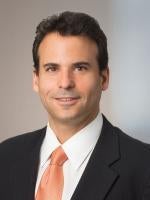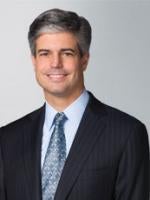When people talk about Cincinnati Reds' closer Aroldis Chapman, you most often hear him described as "hard throwing," a "flamethrower," or a "fireballing left-hander." Chapman regularly clocks 100 mph or more on the radar gun, holds the current record for the fastest recorded pitch at about 105 mph and boasts an impressive 2.41 ERA over the past five years. Indeed, Chapman is known as one of the best at his position.
Chapman heralds from Cuba, a country well-known for its prodigious baseball talent and the mystery that often surrounds the arrival of its baseball players into the United States. Though Cuba recently permitted its baseball players to play and earn a salary in professional leagues outside the country, because of the United States trade embargo with Cuba, the only way these players are able to take the field in the United States is if they defect. And, lured by lucrative contracts, many players have done so via Mexican or Dominican safe houses and smugglers, who may charge hefty "finder's fees." Not surprisingly, the Cuban government is not a big fan of defectors or those who help them. Those who are caught are often subject to serious prison time under charges of human trafficking, which can carry terms of seven to fifteen years.
According to a lawsuit initially filed in May 2012 in the Southern District of Florida, Aroldis Chapman's journey to the United States allegedly colors a part of this dark terrain. In the suit, two men, Danilo Curbelo Garcia ("Curbelo"), an expatriated Cuban citizen, and Carlos Rafael Mena Perdomo ("Perdomo"), a resident of the Dominican Republic, as well as Curbelo's wife and daughter, allege that Chapman and his father conspired with Cuba's Department of State Security to falsely accuse Curbelo and Perdomo of enticing Chapman to defect. Such accusations, they claim, led to their arrest, prolonged detention and torture. Curbelo's wife and daughter make additional claims of loss of consortium, loss of parental consortium, and emotional distress under state law. The suit was filed under the little-known Alien Tort Claims Act and the Torture Victims Protection Act of 1991, which allow redress in United States courts for acts committed against persons in foreign countries including, in this case, certain human rights violations. The plaintiffs seek $24 million in damages.
The plaintiffs claim that Chapman's false testimony was given for the purpose of minimizing any punishment for an earlier attempt by him to defect and to regain a spot on the Cuban national team. As set forth in the lengthy complaint, Chapman allegedly attempted to escape from Cuba in 2008, at a time when he was a prized star on the Cuban national baseball team. Historically, if caught, such actions were met with harsh reprimand by the Castro-run Cuban government; in the case of baseball players, this could mean anywhere from a two-year to a lifetime ban from the sport. In Chapman's case, however, his attempted defection allegedly resulted in a meeting with Raul Castro and a seat on the bench during the Cuban national series and the 2008 Beijing Olympics – a "miraculous" reprieve, in the eyes of the plaintiffs. A year later, the plaintiffs allege that Chapman served as a witness in cases against Curbelo and Perdomo, in which he accused the two of separately encouraging him to defect and helping him with a plan to do so.
While Curbelo and Perdomo each present different stories in the complaint, both claim that Chapman's false testimony, in each case corroborated by Chapman's father, led to their lengthy prison sentences. According to the complaint, Chapman testified that Curbelo and another acquaintance had developed a plan to help him leave the country with the promise that he would be paid handsomely if he did so, but that Chapman had shook off their signs and refused the offer. In Perdomo's case, according to the complaint, Chapman testified that, while he had never met Perdomo, he believed Perdomo had sent an intermediary to offer to smuggle him out of Cuba to play in the Dominican Republic.
While Curbelo does not deny speaking with Chapman about his plans to leave Cuba, he claims the conversation never went beyond the equivalent of a quickly-quashed mound conference. Perdomo claims he has never met Chapman, but happened to have done frequent business in the neighborhood in which Chapman was allegedly approached by Curbelo to defect. According to the complaint, Chapman's testimony, as corroborated by his father, was the only evidence presented against Curbelo and Perdomo at their respective trials in Cuba.
Ultimately, of course, Chapman did defect when he traveled with the Cuban national team to the Netherlands in July 2009. A true free agent for the first time, Chapman signed his first Major League contract in 2010, which was worth approximately $30 million.
Where exactly the truth lies in this convoluted story may never be known. After a plethora of hearings and motions and multiple trial delays, in part to allow Curbelo to serve out his sentence in Cuba, the suit is currently set for trial in November 2014. How these serious allegations will affect Chapman's otherwise bright future remain to be seen. For now, the term "high heat" may have a whole new meaning for this rising star, but as Crash Davis told Nuke LaLoosh in Bull Durham – "Write this down: 'We gotta play it one day at a time.'"








 />i
/>i
